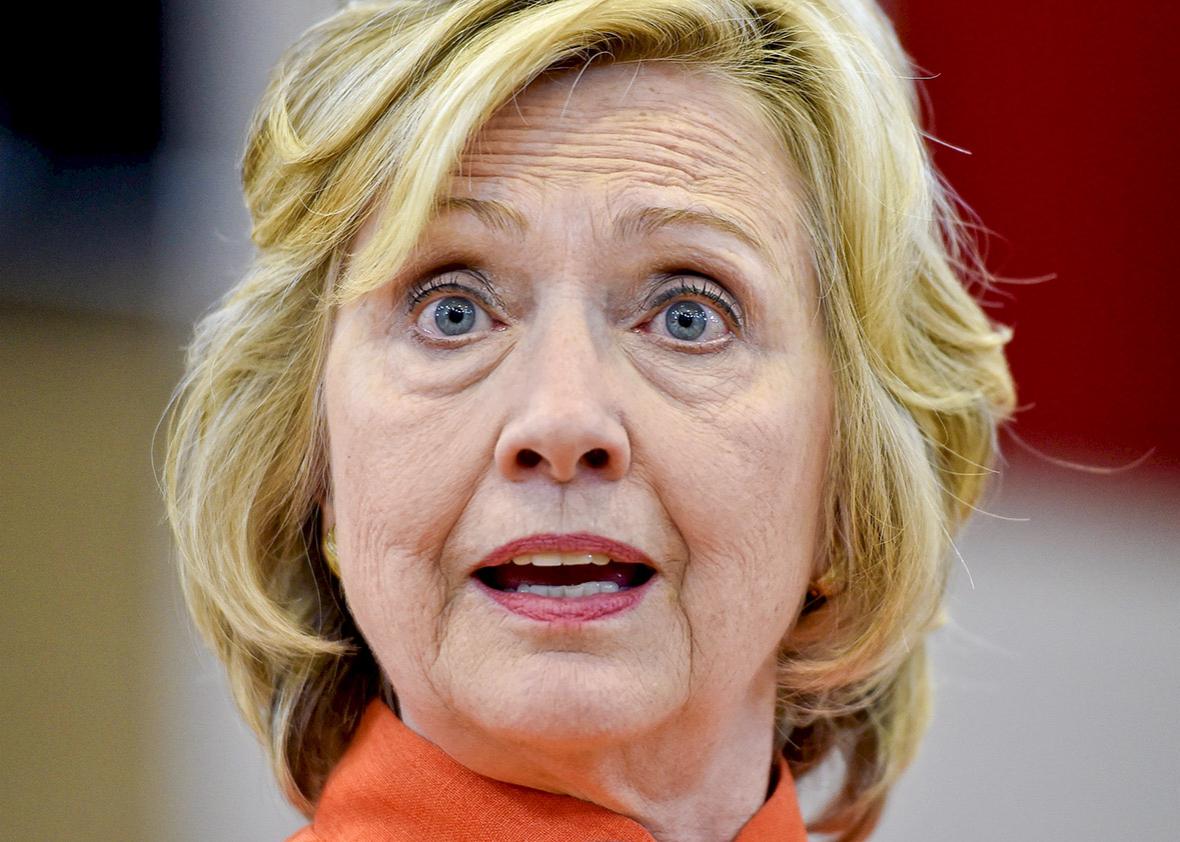Another week brings another chapter in the endless scandal of Hillary Clinton’s email management.
On Monday, the State Department released 4,368 emails—totaling 7,121 pages—from Clinton’s private email server. If you don’t know the story, it’s straightforward: Instead of using her official account, Clinton built a personal server that sent and received messages outside of the State Department’s channels.
Republicans think this is nefarious. “On hundreds of occasions, Hillary Clinton’s reckless attempt to skirt transparency laws put sensitive information and our national security at risk,” said Republican National Committee chairman Reince Priebus in a statement. “With the FBI continuing to investigate, Hillary Clinton’s growing email scandal shows she cannot be trusted with the White House.” And on the other side, some nervous Democrats are casting everywhere for an alternative to the Democratic front-runner, terrified that Clinton will sink under the scrutiny.
The downside for Democrats is that the scrutiny won’t end. With thousands of emails left to drop, the story will continue through the year, into 2016. Even if the emails themselves are banal—quick confirmations, unsolicited advice, gossip, requests for television shows, cryptic references to “gefilte fish”—the reoccurring story will bring coverage, spark scandal fatigue, and hurt Clinton with the public.
But there’s an upside. Yes, Clinton and the Democratic Party will deal with bad press over her private email. But it won’t be catastrophic, since—as far as anyone can tell—the former secretary hasn’t done anything illegal, criminal, or that falls under the vague category of “wrongdoing.” For starters, notes David Ignatius for the Washington Post, “there’s no legal difference whether Clinton and her aides passed sensitive information using her private server or the official ‘state.gov’ account that many now argue should have been used. Neither system is authorized for transmitting classified information.” Which is to say that, in a sense, it doesn’t matter much that Clinton used a private server—both it and her official account are subject to public records laws, and neither was cleared for classified information. If Clinton or her aides had sent sensitive material to or from the state.gov account, they would have been just as culpable.
To that point, there’s no evidence—at least not yet—that either Clinton or her aides sent classified material through the system. At most, her emails contained information that was classified after the fact. When Priebus says, “These new emails show Hillary Clinton exposed even more classified information on her secret server than previously known,” that’s what he means.
Beyond that, Clinton’s behavior doesn’t seem too out-of-step with typical practice. Here’s Ignatius again: “Informal back channels existed long before e-mail. One former State Department official recalled the days when most embassies overseas had only a few phones authorized for secret communications. Rather than go to the executive office to make such a call, officers would use their regular phones, bypassing any truly sensitive details.” The point isn’t that this is OK or that we shouldn’t discuss it, but that—as a matter of practice—we aren’t looking at a serious violation. At worse, so far, we just have misjudgment.
But on that score, Democrats are right to be angry. As one of the most scrutinized people in American politics, Clinton had a duty to her party to tread carefully and avoid obvious mistakes. The private server is an obvious mistake, and if nothing else, it will feed the bottomless media appetite for Clinton scandals, even when they don’t bear fruit. And although you could make the case that this is unavoidable—that she can’t escape the “Clinton rules,” so why bother—it’s also fair for Democrats to want more prudence from their likely nominee.
As it stands, her bid for the nomination has been harmed by a self-inflicted wound. It’s not grievous, but looking at the damage so far, that doesn’t mean it won’t count.
Read more of Slate’s coverage of the 2016 campaign.
